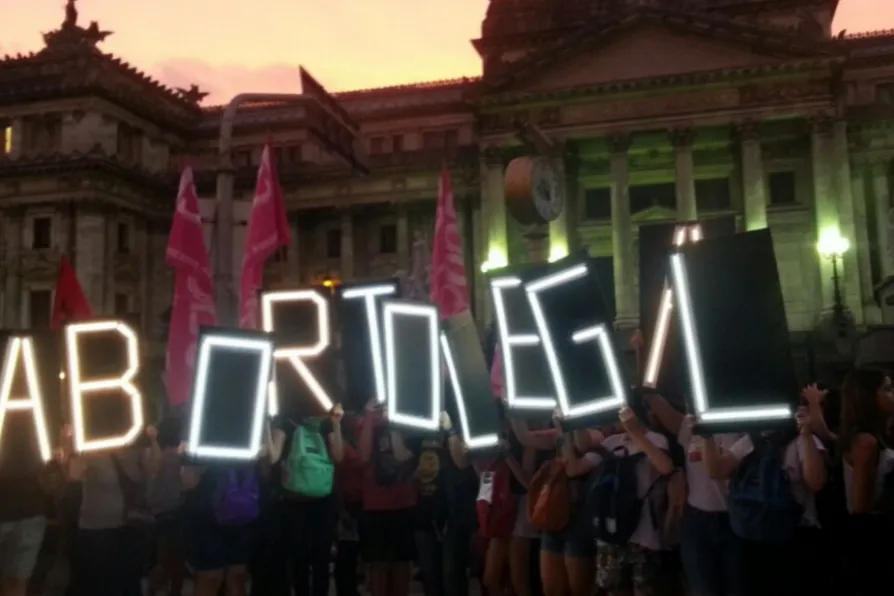Thousands demonstrate for abortion rights in Buenos Aires

 [@CampAbortoLegal/Twitter]
[@CampAbortoLegal/Twitter]
THOUSANDS of women demonstrated outside Argentina’s parliament yesterday to demand decriminalisation of abortion.
Crowds marched wearing green handkerchiefs, the symbol of the Argentinian pro-choice movement.
Similar stories

Despite using female spokespeople for its campaigns against clinic buffer zones, ADF UK’s board consists entirely of men, with 80 per cent living outside Britain and most funding from its US parent, reveals SOLOMON HUGHES













